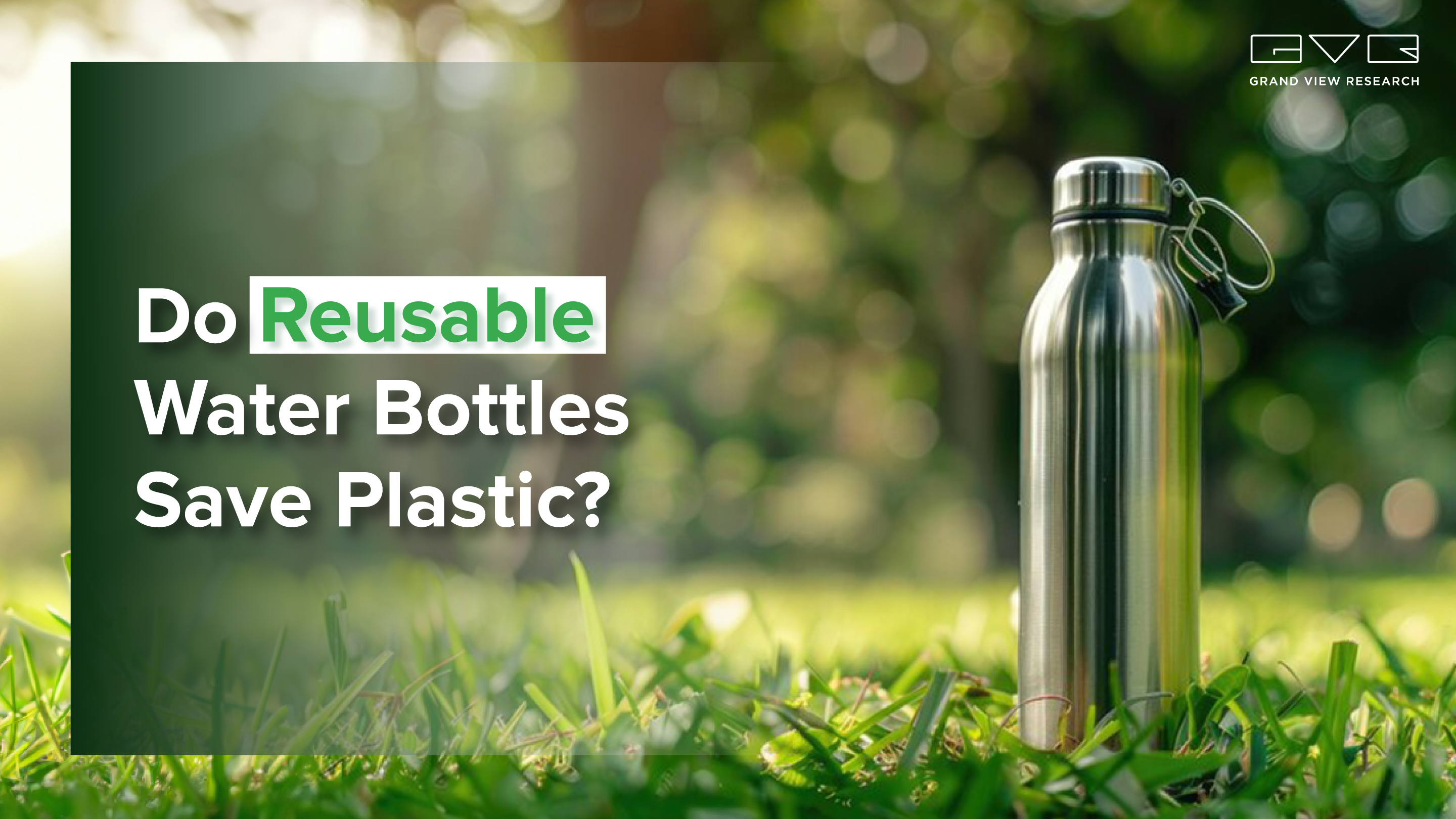Do Reusable Water Bottles Contribute to a Plastic-Free Future?
Growing plastic usage has created a long-term environmental problem in the form of plastic waste. Rising awareness concerning ecological hazards is boosting people to take on the responsibility of reducing their contribution to the plastic problem. Subsequently, an enormous number of shoppers across the globe have initiated casting out single-use plastic-based products, mainly water bottles, and replacing them with reusable water bottles. Although plastic bottles are comparatively less expensive, they are costlier over the long haul, concerning individual spending and ecological debasement.

Furthermore, governments of several countries are adopting a wide number of initiatives to ban single-use plastic water bottles and substitute them with reusable water bottles made of environment-friendly materials, such as glass, and metals, that are safe for use. For instance, the U.S., Australia, Canada, and a few states of India have banned single-use plastic water bottles, thereby opening up new growth avenues for reusable bottles.
Newly formed regulations, policies, and anti-plastic movements by governments worldwide are encouraging consumers to switch to disposable water bottles and prompting manufacturers to develop environment-friendly products.
Scale of Plastic Waste in Business
Businesses are significant contributors to plastic waste, with studies indicating that corporations use billions of single-use plastic bottles annually. This extensive consumption contributes to overflowing landfills and poses serious environmental risks, such as ocean pollution and harm to wildlife.
The consequences of plastic pollution extend beyond environmental concerns; companies face potential damage to their brand reputation as consumers increasingly prioritize sustainability. Furthermore, with growing regulatory scrutiny regarding plastic waste, businesses risk facing fines and compliance costs.
Financially, the costs associated with waste disposal and the negative impact on customer loyalty can significantly affect a company’s bottom line. Adopting sustainable practices, such as using reusable water bottles, can mitigate these risks and enhance corporate responsibility.
Upcoming Market Growth Opportunities
The market for sustainable products is experiencing significant growth as more companies seek innovative solutions to reduce their environmental impact. One notable trend is the rising popularity of reusable stainless steel and glass bottles. These products are not only eco-friendly but have also become fashionable choices among diverse consumer groups.
Working professionals, millennials, young adults, and recent college graduates are increasingly adopting these stylish, durable bottles as part of their daily routines. This shift is driven by a growing awareness of environmental issues and a desire to contribute to sustainability. Stainless steel and glass bottles offer a practical alternative to single-use plastics, aligning with the values of consumers who prioritize both functionality and environmental responsibility. As these products gain traction, they are influencing market dynamics, prompting companies to innovate further in the realm of sustainable materials and practices.
Drawbacks of the Market: Increased Costs of Manufacturing of Reusable Water Bottles
Reusable water bottles face challenges due to their high manufacturing costs, primarily because raw materials like stainless steel and glass are more expensive than plastic. The production of bottles from metals such as stainless steel or copper also involves significant energy consumption. Although glass bottles are a preferred choice for reducing plastic waste, they are prone to breakage and typically have a shorter lifespan compared to plastic bottles.
Fluctuating prices for steel and glass can hinder market growth, as these materials are also crucial in various industries, including construction, automotive, aerospace, transportation, packaging, energy, and appliances. The demand for different types of steel—such as stainless, high-temperature, high-speed, and carbon steel—across these sectors further influences price volatility. Additionally, the extraction process of iron ore, which is a key component in steel production, adds to the price fluctuations impacting the global steel market. Consequently, trends in raw material prices are expected to affect the reusable water bottle market throughout the forecast period.
The Roadmap
Reusable bottles play a crucial role in mitigating plastic pollution and promoting environmental sustainability. By opting for materials such as stainless steel and glass, consumers significantly reduce their reliance on single-use plastics, which are major contributors to environmental degradation.
The durability and longevity of reusable bottles not only minimize the frequency of replacement but also cut down on the overall waste generated. As more individuals and businesses embrace these eco-friendly alternatives, the collective impact on reducing plastic pollution becomes more substantial. Thus, investing in reusable bottles is not just a personal choice but a pivotal step towards a more sustainable and less wasteful future.
To schedule a free market intelligence database demo, please complete the form below:
Service Guarantee
-
Insured Buying
This report has a service guarantee. We stand by our report quality.
-
Confidentiality
Your transaction & personal information is safe and secure.
-
Custom research service
Design an exclusive study to serve your research needs.
-
24/5 Research support
Get your queries resolved from an industry expert.